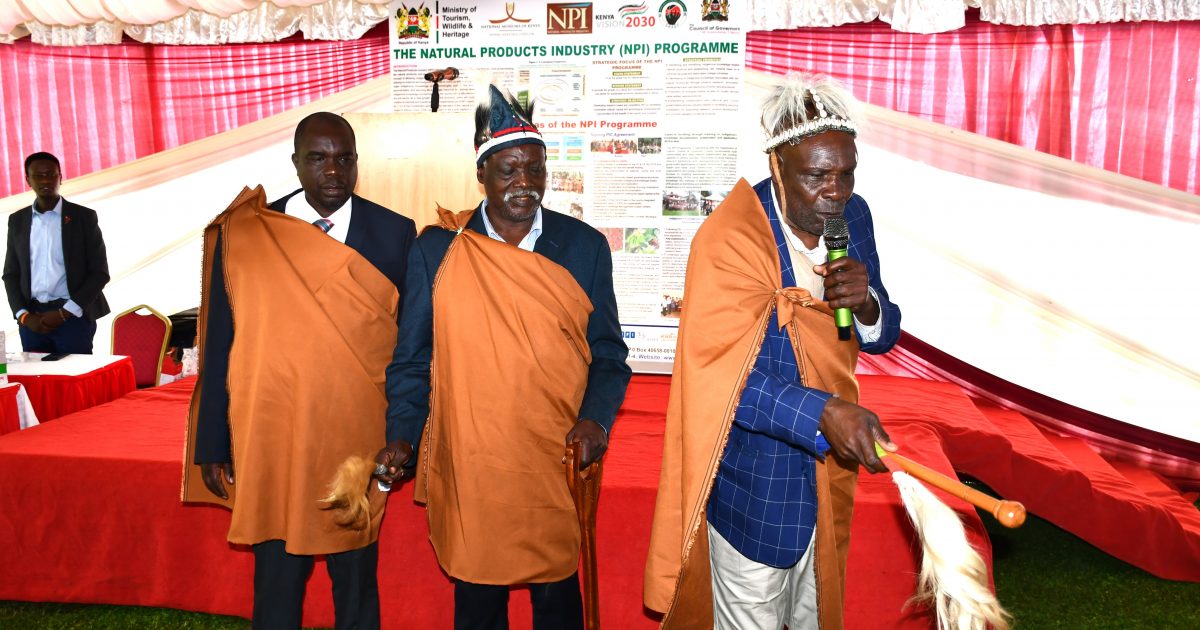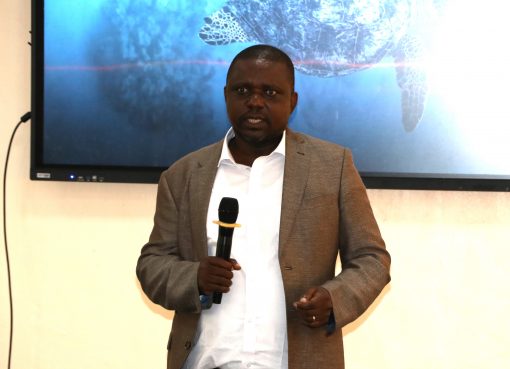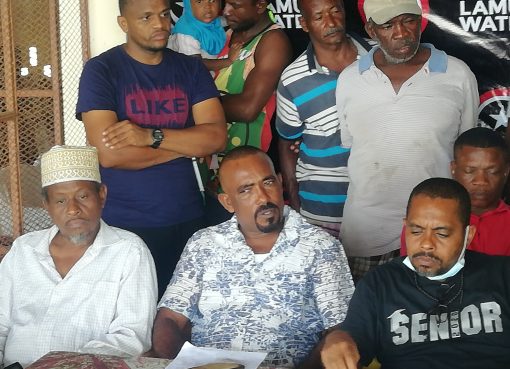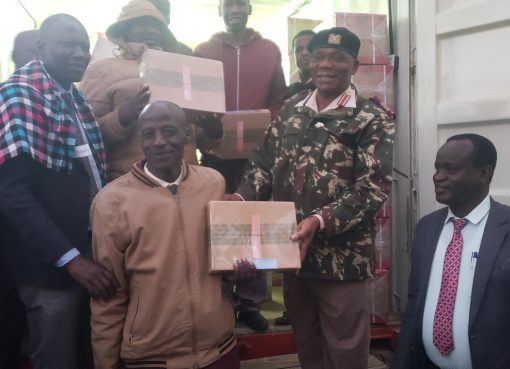The Ministry of Tourism, Wildlife, and Heritage through the Natural Products Industry (NPI) has kicked off the Indigenous Knowledge Documentation and Digitization (IK-DODI) of traditional assets among the Kipsigis community in Kericho County.
The Ministry is implementing the program in partnership with different government agencies, county governments, and indigenous peoples and local communities (IPLCs) with the aim of protection, promotion, and valorization (value addition) of Kenya’s traditional knowledge and associated assets.
Speaking in Kericho town during the launching of the program, the Director of Culture in the Ministry of Tourism Wildlife and Heritage Dr. Kiprop Lagat said the program is part of the government’s effort to operationalize Kenya’s “Protection of Traditional Knowledge and Cultural Expressions Act 2016 (TK&CE Act 2016) (revised 2018).
Dr. Lagat mentioned that the program will specifically implement section 8 (3), which obligates the national government to establish mechanisms for digital repositories for knowledge and cultural expressions, documented and registered by the County governments.
“Kericho has a very rich traditional base, especially on matters of traditional knowledge, skills, and heritage sites and therefore this exercise is intended to ensure that the local people are able to harness the intellectual heritage resources pertaining to traditional knowledge and cultural expressions, with a view of not only preserving and promoting them but also ensuring that they benefit and enhance their livelihoods and the gross domestic product of the county,” added Dr. Lagat
The Director was confident that the digital equipment donated by the National government including computers and cameras will enhance the digitization exercise that will lead to the creation of an innovation bank within the county, where intellectual heritage resources pertaining to traditional knowledge and cultural expressions will be stored.
“The innovation bank will be based in the county, where anybody can access the database. We are working on modalities and this is prescribed in law, whereby anybody who uses those resources must pay to ensure communities are able to access the benefits that would be accrued from that process,” said Dr. Lagat
According to the Natural Products Industry (NPI) Coordinator Dr. Evans Taracha, a team of 30 young champions for culture have been trained and equipped with knowledge and skills to undertake the documentation and digitization of the cultural assets in all the six sub-counties of Kericho.
“Six community elders will be guiding the young champions, who will be divided into five groups visiting different sub-counties to document the various rich intellectual assets of this county for a period of one month,” said Dr. Taracha.
On her part, the Kericho County Executive Committee Member (CECM) for Education, Culture, Libraries and Social Services Judith Chirchir, who represented the County governor at the launching event, underscored the significance of culture saying a budget will soon be allocated for the purposes of preservation of culture in Kericho.
“We also look forward to hosting hundreds of guests on the eve of Mashujaa Day celebration of our culture, where we will showcase various artifacts, sample our traditional cuisine, and enjoy Kipsigis traditional songs and dance. During the culture night, which we expect to host on the eve of Mashujaa day, we will also honor our heroes and elders,” added Chirchir.
Meanwhile, the chairman of Kipsigis Culture Heritage Restoration Joel Kimeto has expressed optimism that the preservation of the Kipsigis culture is now a reality saying future generations would be in a better place to learn the history of our Kenyan communities.
“Our historic sites, traditional cuisine, medicine, songs and dance, way of life, and even the dress code, need to be documented and we are really happy that the government will be undertaking this important exercise for posterity purposes,” stressed Kimeto
According to the Protection of Traditional Knowledge and Cultural Expressions Act 2016 (TK&CE Act 2016) (revised 2018), traditional knowledge associated with cultural expressions (verbal and non-verbal) include stories, epics, legends, poetry, riddles, words, signs, names, symbols, ceremonies, spirituality, way of communication, sacred sites and objects, creative industry, therapy chants (hymns) dispute resolution mechanisms, sports and other forms of entertainment among others.
The Act further stipulates that traditional knowledge associated with genetic resources or other components of biological diversity include microbial resources, plant and animal resources in food agriculture, health, environmental services and traditional technologies, material science as well as implements and tools manufacture and know-how.
By Kibe Mburu





